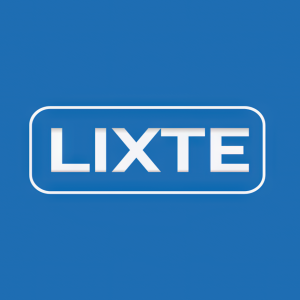NEW SCIENTIFIC PUBLICATION SHOWS LB-100, LIXTE’S LEAD CLINICAL COMPOUND, CAN FORCE CANCER CELLS TO GIVE UP THEIR CANCER-CAUSING PROPERTIES
LB-100 IS SYNERGISTIC WITH WEE1 INHIBITION IN KILLING CANCER CELLS; FINDING OPENS NEW TREATMENT STRATEGY IN ADDITION TO THREE CURRENT LIXTE CLINICAL TRIALS
PASADENA, CA, March 27, 2024 (GLOBE NEWSWIRE) -- LIXTE Biotechnology Holdings, Inc. (“LIXTE” or the “Company”) (Nasdaq: LIXT and LIXTW), a clinical stage pharmaceutical company, announced today publication of pre-clinical data in the online journal, Cancer Discovery, showing that its lead clinical compound, LB-100, can force cancer cells to give up their cancer-causing properties in a paper entitled “Paradoxical activation of oncogenic signaling as a cancer treatment strategy.” The finding opens a potentially new treatment strategy in addition to LIXTE’s current three clinical trials.
As will be published in the July 2024 issue and posted online today, LB-100 was shown to trigger hyper-activation of the signals that are responsible for the deregulated proliferation of cancer cells, which is the opposite of most of the current generation of cancer therapies. The deliberate hyper-activation of cancer signals becomes lethal when combined with an inhibitor of the WEE1 kinase. This well-tolerated combination proved to be highly effective in killing colon cancer cells in animal models of cancer and in cell culture.
Resistance to therapy is the leading cause of death due to cancer. Resistance to LB-100 therapy, however, has been shown to be associated with cancer cells becoming less malignant. Specifically, colon cancer cells that developed resistance to LB-100 had lost many of the features that make the cells cancerous in the first place and were unable to form tumors in experimental animal models.
This “tumor suppressive drug resistance” stems from the unique features of LB-100. Although cancer-causing signals force cancer cells to become more cancerous, the hyper-activation of these signals by LB-100 forces cancer cells to suppress these signals and thus become less cancerous.
The team of scientists reporting these findings was headed by Professor René Bernards at the Netherlands Cancer Institute and Oncode Institute, Amsterdam. Professor Bernards is a a leader in the field of molecular carcinogenesis and is a member of the Board of Directors of LIXTE.
Bas van der Baan, Chief Executive Officer of LIXTE, said, “The effect of LB-100 on cancer cells is unique in that the only way for cancer cells to escape death is to evolve toward a less cancerous behavior. We look forward to testing this concept clinically, which is distinct from the well-characterized enhancement of checkpoint immunotherapy and chemotherapy by LB-100 currently being tested in three clinical trials.”
About LIXTE Biotechnology Holdings, Inc.
LIXTE Biotechnology Holdings, Inc. is a clinical-stage pharmaceutical company focused on new targets for cancer drug development and developing and commercializing cancer therapies. LIXTE has demonstrated that its first-in-class lead clinical PP2A inhibitor, LB-100, is well-tolerated in cancer patients at doses associated with anti-cancer activity. Based on extensive published preclinical data (see www.lixte.com), LB-100 has the potential to significantly improve outcomes for patients undergoing various chemotherapies or immunotherapies. LIXTE's new approach has no known competitors and is covered by a comprehensive patent portfolio. Proof-of-concept clinical trials are in progress.
Forward-Looking Statement Disclaimer
This announcement contains certain forward-looking statements within the meaning of Section 27A of the Securities Act of 1933, and Section 21E of the Securities Exchange Act of 1934. For example, statements regarding the Company's financial position, business strategy and other plans and objectives for future operations, and assumptions and predictions about future activities, including the continuing development of proprietary compounds, the planning, funding, coordination and potential results of clinical trials, the patent and legal costs to protect and maintain the Company's intellectual property worldwide, and the Company’s ability to obtain and maintain compliance with Nasdaq’s continued listing requirements, are all forward-looking statements. These statements are generally accompanied by words such as "intend," anticipate," "believe," "estimate," "potential(ly)," "continue," "forecast," "predict," "plan," "may," "will," "could," "would," "should," "expect" or the negative of such terms or other comparable terminology.
The Company believes that the assumptions and expectations reflected in such forward-looking statements are reasonable, based on information available to it on the date hereof, but the Company cannot provide assurances that these assumptions and expectations will prove to have been correct or that the Company will take any action that the Company may presently be planning. However, these forward-looking statements are inherently subject to known and unknown risks and uncertainties. Actual results or experience may differ materially from those expected or anticipated in the forward-looking statements. Factors that could cause or contribute to such differences include, but are not limited to, regulatory policies, available cash resources, research results, competition from other similar businesses, and market and general economic factors.
Readers are urged to read the risk factors set forth in the Company’s filings with the United States Securities and Exchange Commission at https://www.sec.gov. The Company disclaims any intention or obligation to update or revise any forward-looking statements, whether as a result of new information, future events or otherwise.
For more information about LIXTE, Contact: info@lixte.com
General Phone: (631) 830-7092; Investor Phone: (888) 289-5533
or
PondelWilkinson Inc. Investor Relations pwinvestor@pondel.com
Roger Pondel: (310) 279-5965; Laurie Berman: (310) 279-5962








